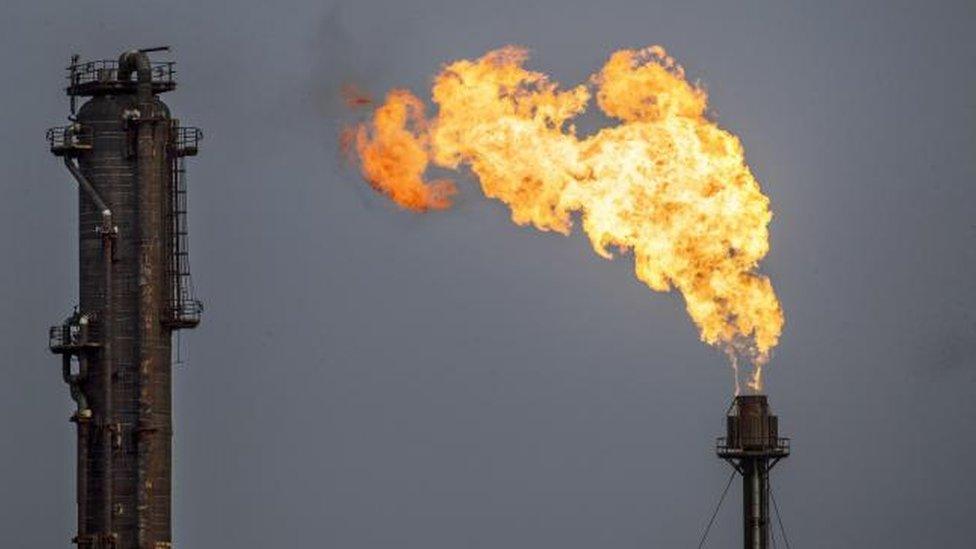Owners say elevated flaring ended at Mossmorran chemical plant
- Published
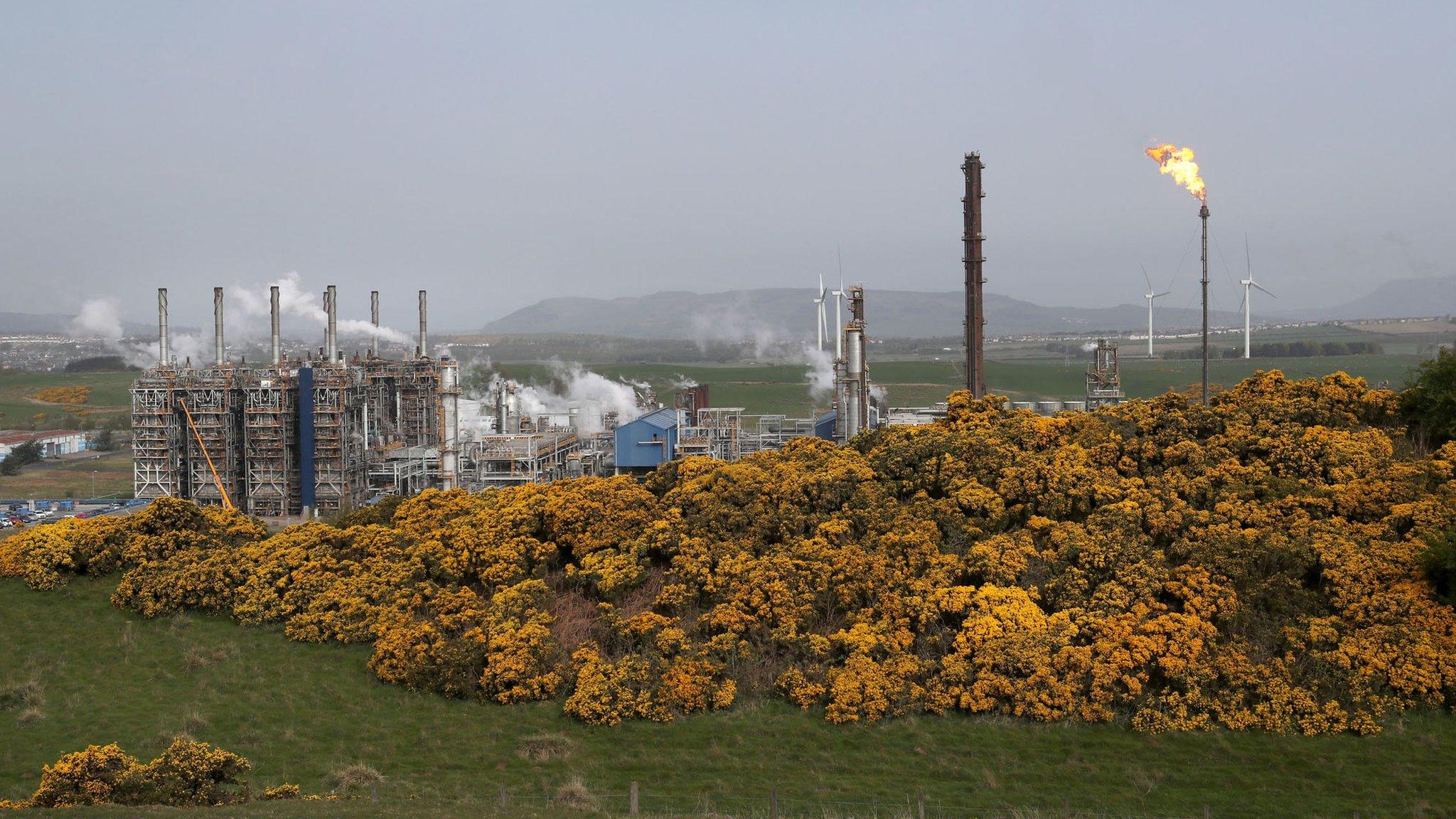
Elevated flaring has ended at Mossmorran petrochemical plant in Fife, according to its owners.
But ExxonMobil has told Scottish Environment Protection Agency (Sepa) that ground flaring will continue above normal levels for "a short period".
The announcement comes as more than 750 complaints have been made about unplanned flaring which started at the plant six days ago.
On Thursday Sepa launched a formal investigation into the flaring event.
'Numerous calls'
The environment body said it was continuing to maintain its full operational response including regulatory, air quality and noise monitoring across the weekend.
It said flaring was a legitimate safety mechanism at the plant but it was happening too often and was "wholly unacceptable".
A further update on monitoring results will be published early next week.
On Friday night, Police Scotland said it had received "numerous" calls about large fires in Fife. They said it had been confirmed as flaring at Mossmorran.
Allow X content?
This article contains content provided by X. We ask for your permission before anything is loaded, as they may be using cookies and other technologies. You may want to read X’s cookie policy, external and privacy policy, external before accepting. To view this content choose ‘accept and continue’.

Many local people then took to Twitter to air frustrations at the ongoing situation.
Mari Erskine wrote: "The noise has been like an aeroplane taking off constantly keeping us awake all night and on edge during the day."
Derek Wilson said: "People have had enough of this. I've had a sore throat and sore ears for going on a week now."
Allow X content?
This article contains content provided by X. We ask for your permission before anything is loaded, as they may be using cookies and other technologies. You may want to read X’s cookie policy, external and privacy policy, external before accepting. To view this content choose ‘accept and continue’.

Sepa said the number of complaints to its 24-hour hotline was the highest number for any single event.
ExxonMobil has blamed the flaring on a fault in a section of cable.
The company said such incidents were "very rare" and that there was "no cause for concern in relation to air pollution and associated health".
On Saturday, ExxonMobil tweeted, external: "At around 23:00 last night our team returned the plant safely back to normal operations. Elevated flaring has now ended. We are committed to sharing more information as our investigation continues."

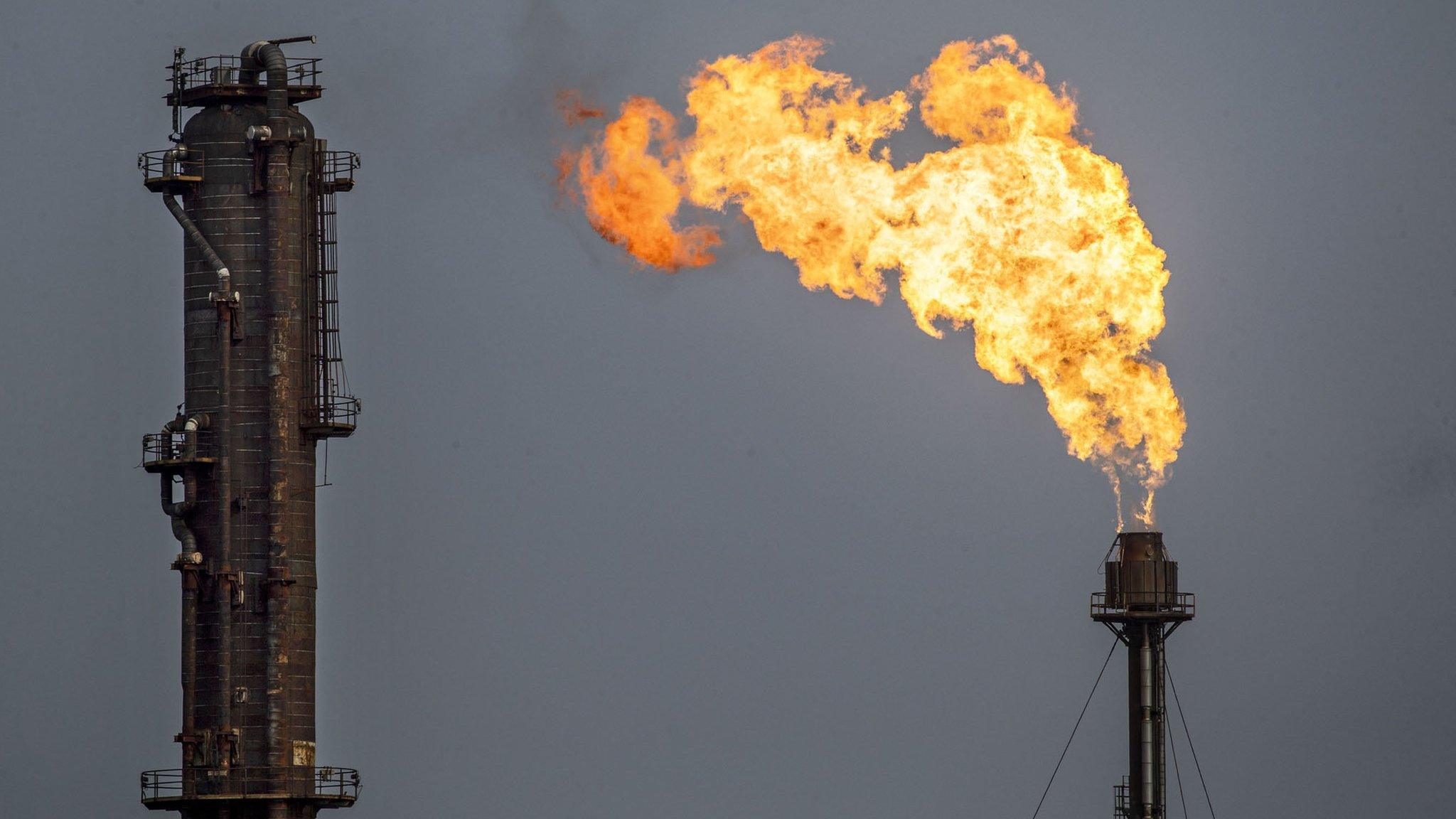
What is chemical flaring?
Chemical flaring is used to relieve pressure without simply pumping potentially dangerous chemicals into the environment.
It generally happens when a problem has arisen and gas which cannot be processed properly is burned.
Flaring can represent a large loss of otherwise valuable products and energy capacity.
The process is regarded by industry experts as an important safety mechanism and is permitted through certain conditions.

ExxonMobil was served with final warning letters last year over a serious flaring incident which took place in June 2017.
Then in June 2018, Sepa and the Health and Safety Executive said they would carry out an investigation into further incidents at the plant.
A community meeting has been planned for Friday 17 May, which Sepa will attend.
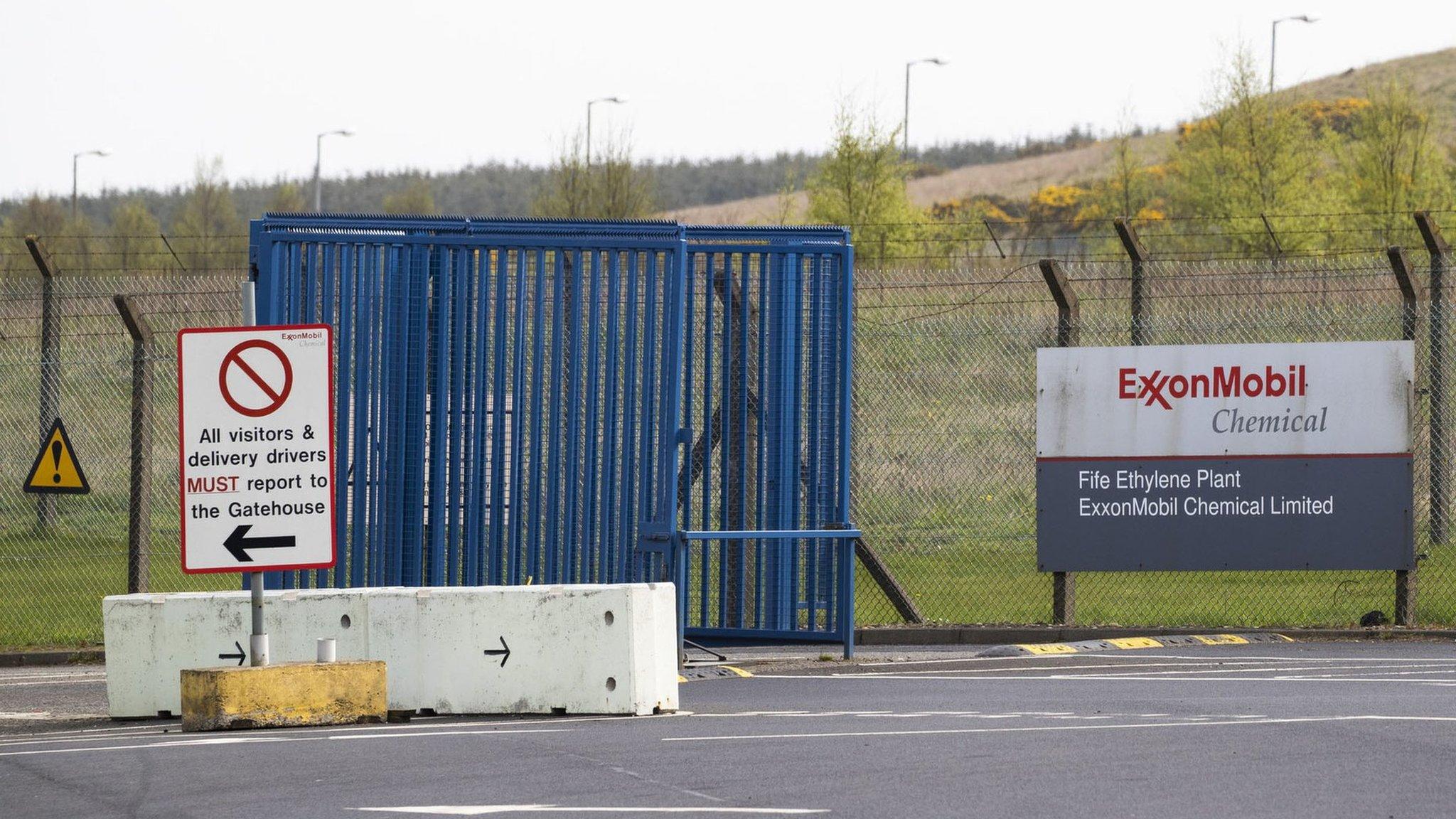
Sepa chief Terry A'Hearn said: "ExxonMobil have advised that after six long days and nights for local communities, elevated flaring has ceased. They advise however that ground flaring will continue for what they describe as a short period.
"Whilst the Mossmorran complex is a major industrial facility where this type of flaring is a legitimate safety mechanism, this is happening too often and the level and extent of flaring is wholly unacceptable.
"Understanding the impact of flaring provided by local communities, families and individuals is vitally important and, as such, we would encourage people to continue to report impacts directly to us online at www.sepa.org.uk/report or via our 24 Hour Pollution Hotline on 0800 80 70 60."
- Published23 April 2019
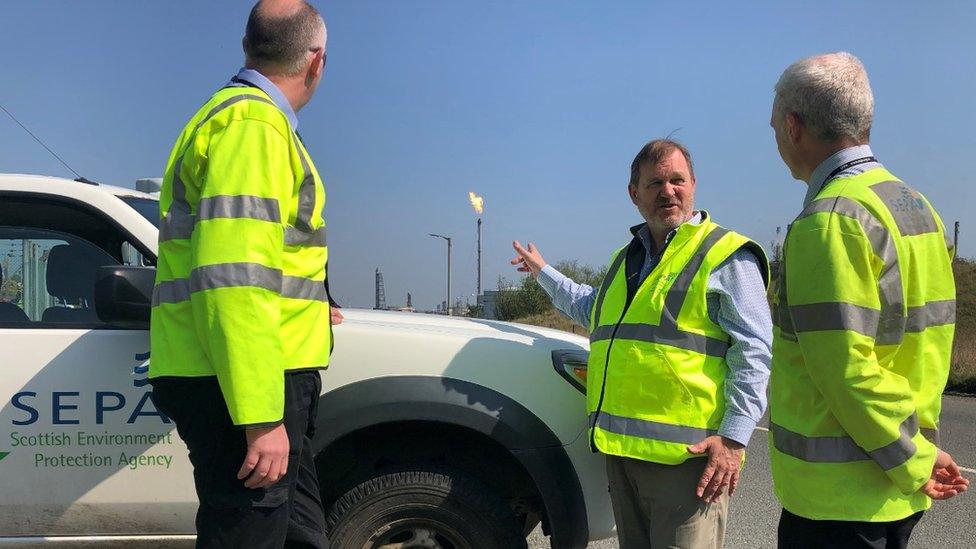
- Published25 April 2019
